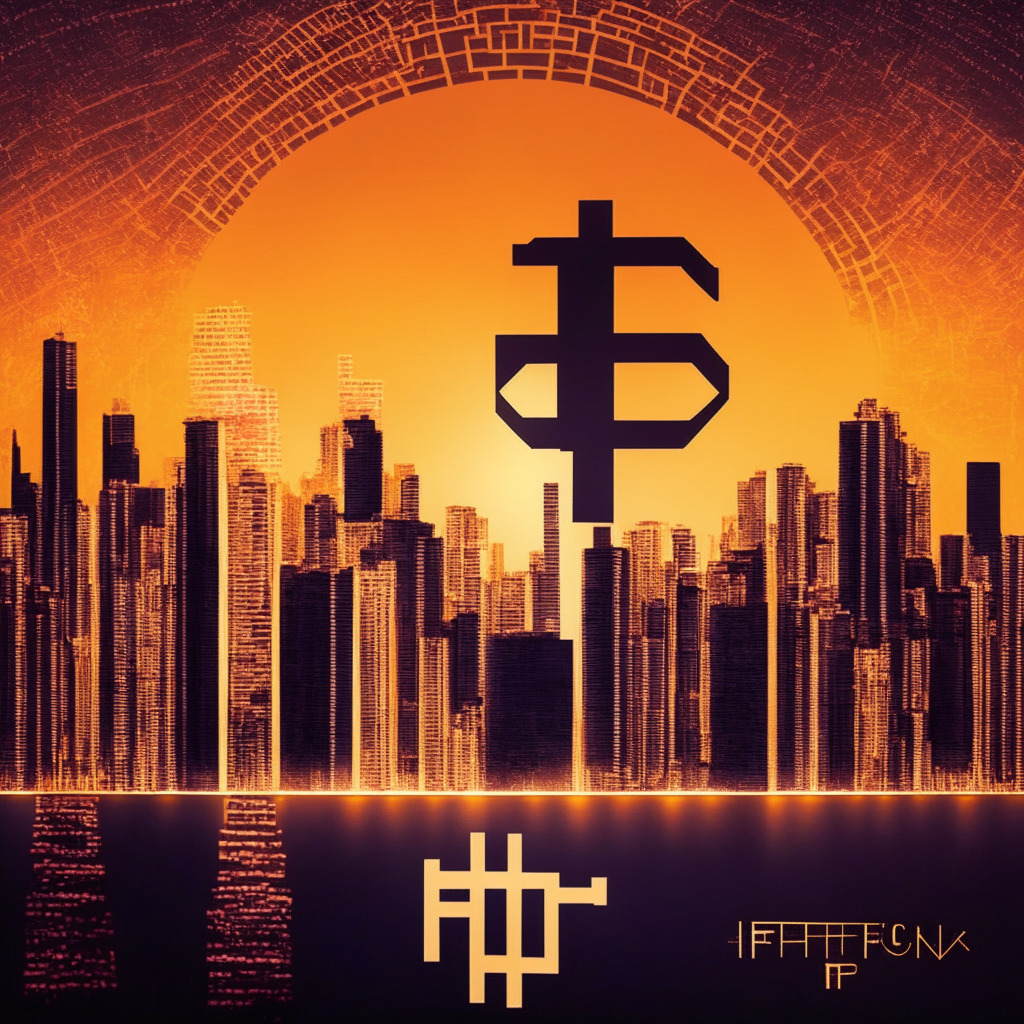Binu Paul, former head of digital assets at the FCA, leaves the organization after nine months, and Victoria McLoughlin steps in as interim Head of Market Interventions for digital assets. This leadership change occurs amid the FCA’s intense focus on regulating the emerging crypto industry and enforcing stricter advertising rules for crypto services. McLoughlin’s experience at the FCA signals a continued stable approach to cryptoasset regulation.
Search Results for: VASP
Japan’s Crypto Tax Policy Shift: Attracting Growth or Inviting Risks?
The Japanese National Tax Agency has softened its crypto taxation stance, benefiting corporations dealing with digital assets and potentially making Japan a hub for such companies. However, investors must remain vigilant as regulations and risks continuously evolve in this rapidly growing market.
Belgium Forces Binance to Halt Operations: The Rising Trend of Crypto Regulatory Compliance
Belgium’s Financial Services and Markets Authority (FSMA) has ordered Binance to halt services due to violation of Belgian law by serving local customers from countries outside the EEA. This move seeks to combat money laundering and terrorism financing, with Binance expressing disappointment and ongoing collaboration with regulators.
Binance Indictment by SEC: European Authorities Respond and Upcoming MiCA Regulations
The SEC’s indictment of Binance has prompted reactions among European authorities, with increasing scrutiny over its operations and financial structure. Binance now prepares for upcoming MiCA regulations in the EU, highlighting the importance of transparency and compliance for maintaining trust.
Binance UK Subsidiary Deregisters: Navigating Complex Crypto Regulations & Global Challenges
Binance Markets Limited (BML), the UK subsidiary of crypto exchange Binance, has withdrawn its registration with the UK’s Financial Conduct Authority (FCA), indicating it can no longer offer regulated activities and products in the UK. This decision follows the FCA’s consumer warning in June 2021 and Binance’s ongoing regulatory challenges in the U.S., France, Cyprus, and the Netherlands.
Navigating Turbulent Regulatory Waters: Binance’s Ongoing Struggle and Crypto Future
The UK Financial Conduct Authority approved Binance Markets Limited’s request to deregister, emphasizing the challenges crypto exchanges face when establishing a regulated presence. Binance’s legal troubles extend to Cyprus and the Netherlands, raising questions about the future of crypto exchanges and the need for adequate regulatory frameworks promoting safety and compliance.
Binance’s Dutch Market Departure: Upholding Regulations or Struggling to Comply?
Binance’s withdrawal from the Dutch market, prompted by its inability to secure VASP registration with regulatory authorities, raises questions about the crypto exchange’s commitment to upholding regulations and its ability to function effectively in an increasingly regulated landscape. Market participants are urged to conduct thorough research and consider shifting landscapes around cryptocurrencies and exchanges.
Binance Exits Dutch Market Amid Regulatory Pressure: Is the Crypto Giant in Trouble?
Binance withdraws from the Dutch market following a failed attempt to secure a VASP license. The exchange faces increasing regulatory challenges, including allegations from the US SEC. Amidst an evolving regulatory landscape, crypto exchanges must adapt and ensure compliance to endure in various markets.
BlackRock’s Bitcoin ETF: Boon for Mainstream Adoption or Trigger for More Market Volatility?
BlackRock has filed paperwork with the SEC to create a spot Bitcoin ETF under its iShares unit, which may boost mainstream adoption and bring institutional investors into the crypto space. However, regulatory hurdles and a history of rejections could make the approval process lengthy and uncertain, and potentially increase market volatility.
Binance’s Dutch Exit: Impact on Crypto Ecosystem and the Struggle for Legitimacy
Binance exits the Dutch market after failing to secure a virtual asset service provider license, halting new user registrations and ceasing trading on July 17. This raises questions about the broader impact of increased regulatory scrutiny on the crypto space and signifies a shift in the struggle for greater crypto acceptance and legitimacy.
Binance Exits Dutch Market: Balancing Regulation and Crypto Industry Growth
Binance, the world’s largest cryptocurrency exchange, withdraws from the Dutch market due to an inability to obtain a Virtual Asset Service Provider license. The withdrawal raises concerns regarding the future of the Netherlands’ crypto market and highlights the delicate balance between regulatory compliance and fostering a thriving industry.
Hong Kong Central Bank Pushes for Crypto Adoption: Pros, Cons, and Conflicts in the Financial World
The Hong Kong Monetary Authority (HKMA) is pressuring major banks like HSBC and Standard Chartered to accept crypto exchanges as clients, highlighting growing cryptocurrency acceptance and the need for traditional financial institutions to adapt to this evolving landscape.
TRON’s TRX Expansion and Hong Kong’s Retail Crypto Trading: Boon or Bane for Investors?
TRON’s native cryptocurrency, TRX, has gone live on the Ethereum blockchain via BitTorrent Bridge, boosting liquidity and DeFi ecosystem use. Meanwhile, Hong Kong opens up to retail cryptocurrency trading, signaling significant advancements in digital asset trading and potential growth in the blockchain sector.
Huobi Aiming for Hong Kong Crypto License: Pros, Cons, and Regulatory Hurdles
Huobi crypto exchange aims to obtain a crypto trading license in Hong Kong, with potential approval by year-end, according to Huobi advisor Justin Sun. The strategic relocation to Hong Kong positions the company closer to launching Huobi Hong Kong in the city that aims to become a virtual asset hub.
Hong Kong’s First Bitcoin Spot ETF: Contrasting Approaches in Asia and the US
Hong Kong prepares for its first spot Bitcoin ETF, showcasing contrasting attitudes between Asian financial hubs and the US SEC. The Hong Kong SFC-approved VSFG (Yibo Finance) aims to list a spot Bitcoin fund as an ETF while engaging with ETF issuers and regulators.
UAE’s Growing Crypto Hub: Balancing Innovation and AML/CFT Regulations
The UAE Central Bank introduces new anti-money laundering and counter-terrorism financing guidelines for crypto businesses and financial institutions handling digital assets, reinforcing supervisory frameworks and mitigating risks. These measures support UAE’s push to become a global hub for the crypto industry while adhering to international standards.
Crypto Assets as Securities and Evolving Regulations: The Future of EU and Global Markets
A study commissioned by the European Parliament suggests that crypto assets may soon be treated as securities by default, based on the EU’s existing financial regulation framework. This move could lead to a more stringent regulatory environment for cryptocurrencies in the EU. Meanwhile, cross-compatibility of blockchain addresses gains momentum, and Gemini plans to acquire a crypto license in the UAE.
Georgia’s Crypto Surveillance: Preventing Money Laundering or Stifling Innovation?
Georgia plans to commence mandatory supervision of virtual asset service providers (VASPs) starting Sept. 1, 2023, to prevent money laundering and comply with sanctions. Alongside VASP supervision, foreign bank account restrictions will be implemented to support Georgia’s economic stability. The country also prepares to approve cryptocurrency regulations, aiming to establish itself as a global crypto hub.
HKMA and CBUAE Collab on Virtual Assets: Boosting Fintech and Challenging US Hegemony
The Hong Kong Monetary Authority (HKMA) and the Central Bank of the United Arab Emirates (CBUAE) collaborate on virtual asset regulations and developments, aiming to strengthen cooperation, promote fintech initiatives, and improve cross-border trade settlement. This partnership coincides with Hong Kong’s Securities and Futures Commission allowing virtual asset service providers to cater to retail investors.
Bridging Solana and Ethereum: Key App Innovates and Cross-Network Transfers Simplified
Key App introduces a bridge for Solana and Ethereum users, simplifying token transfers between networks using Wormhole’s technology. The European Central Bank moves closer to a digital euro with finalized prototypes, while Hong Kong’s CoinEx launches BitHK, a regionally-focused crypto trading platform.
Hong Kong Retail Crypto Trading: Balancing Innovation and Regulation Challenges
Hong Kong’s retail trading regime launches on June 1st, with several cryptocurrency companies, like CoinEx and Huobi, announcing their Virtual Asset Service Provider (VASP) license applications. This has generated a competitive atmosphere among crypto firms, as they aim to establish a strong presence in the region. However, concerns remain regarding potential risks and regulatory challenges for investors.
Gemini’s Irish Expansion: Navigating European HQ and MiCA Regulation Debates
Gemini’s expansion into Ireland establishes its European HQ, signifying the country’s competitive offering in the international financial services sector. As the upcoming MiCA regulation looms, Gemini continues to navigate regulatory challenges while advocating for common-sense consumer protection and fostering innovation in the crypto industry.
Gemini’s Irish Expansion: A Beacon for Crypto Innovation Amid US Regulatory Challenges
Gemini, the cryptocurrency exchange run by the Winklevoss twins, has chosen Ireland as its new European home, becoming the first crypto company registered as a Virtual Asset Service Provider (VASP) in July 2022. The expansion highlights ongoing regulatory uncertainty and the need for companies to seek refuge in more favorable regulatory environments.
Gemini Chooses Ireland as European Hub: Regulatory Landscape, Market Growth, and Controversy
Crypto exchange Gemini chooses Ireland as its European hub, citing its regulatory landscape, talent pool, and technology community. Despite Irish central bank chief’s call for a ban on crypto advertising, multiple exchanges have set up in the country, anticipating growth and innovation in the European crypto landscape under supportive regulatory environments.
OKX App Upgrade Boosts Hong Kong Crypto Trading: Security vs. Market Volatility Pros & Cons
OKX, the world’s second-largest crypto exchange, releases an upgraded app for Hong Kong users, offering safe and secure spot trading of 16 widely-used cryptocurrencies. This comes ahead of Hong Kong’s new regulatory framework for virtual asset service providers, with OKX demonstrating their commitment to regulatory requirements, security measures, and compliance capabilities.
Hong Kong Opens Crypto Trading to Retail Investors: Opportunity or Risk?
Hong Kong plans to allow retail investors to trade top cryptocurrencies like Bitcoin and Ethereum, positioning itself as a dominant player in the crypto world despite regulatory crackdowns in other countries. With investor protection measures and licenses for virtual asset firms, this move attracts major crypto exchanges and presents both opportunities and challenges in the global crypto market.
BitMEX Hong Kong: Embracing Compliance or Compromising Security? Pros and Cons Explored
BitMEX Hong Kong is designed to comply with the upcoming Virtual Asset Service Provider (VASP) regime, set for May 2023. Users will transition to HDR BMEX Limited and use the dedicated BitMEX Hong Kong app, offering greater portfolio control and streamlined user experiences.
Estonia’s Crypto Crackdown: Balancing Tech Adoption and Regulatory Compliance
Estonia enhanced its AML laws, impacting 400 Virtual Asset Service Providers (VASPs) that voluntarily shut down or lost authorizations. Despite stricter regulations, Estonia hosts 100 active crypto firms, showcasing the challenge of balancing safety and innovation in the crypto ecosystem.



























